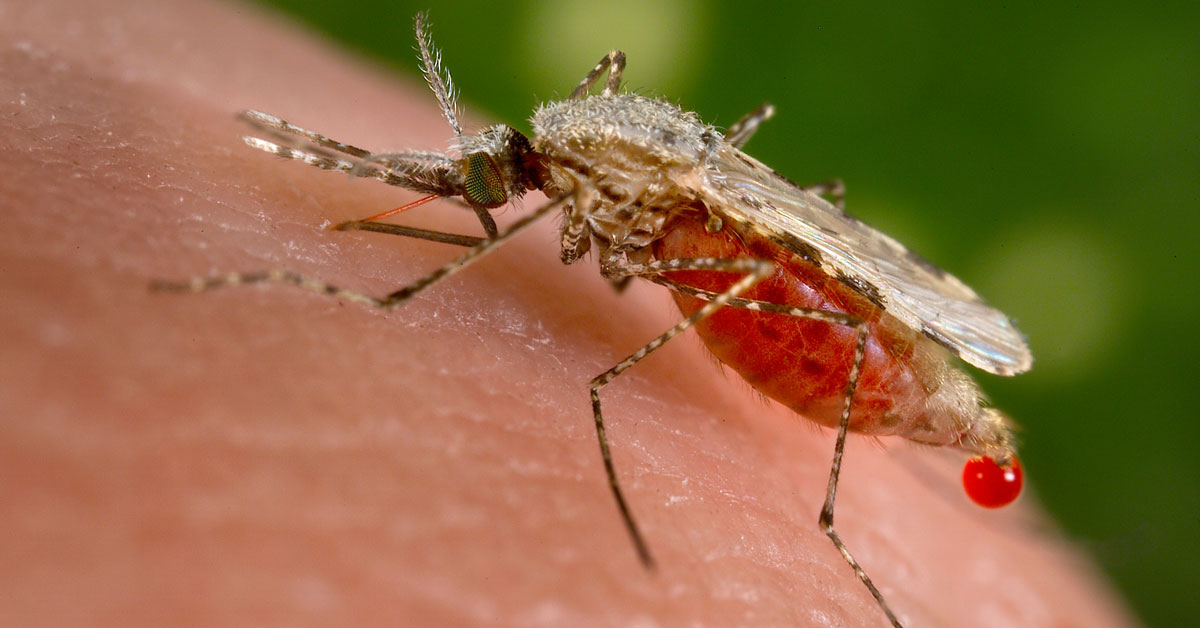
Infecting mosquitoes with a naturally occurring biocontrol agent means they can't pass malaria to people. Report: Claire Robinson and Jonathan Matthews
A just-published study carried out in a high-security lab claims to show that a CRISPR gene drive (a way of forcing a heritable genetic modification through a whole species or population) can crash populations of malaria-spreading mosquitoes.
But why crash mosquito populations with a risky experimental technology if you can completely stop them spreading malaria naturally? A naturally occurring biocontrol agent – a microbe – that inhibits the development of the malaria parasite in the mosquito Anopheles arabiensis, which spreads malaria in Sub-Saharan Africa, has recently been reported in the journal Nature Communications.
Among the notable features of this approach are:
• The microbe doesn’t seem to harm the mosquitoes in any way
• Because it doesn’t kill the mosquitoes or cut their numbers, it should not have an impact on ecosystems dependent on them for food
• The microbe seems to give the mosquitoes lifelong protection from malaria infection.
The researchers are based at the International Centre of Insect Physiology and Ecology (ICIPE), Kenya, and in the UK. The microbe featured in their recent publication is a microsporidian.
Microsporidia are unicellular spore-forming parasites that are now recognised as fungi, or as being related to fungi. All major animal groups harbour them, particularly insects. They spread horizontally, via spores that are ingested by a new host, but many also undergo vertical transmission to the next generation, via infected eggs (known as transovarial transmission).
The Kenya based group identified a new microsporidian in Anopheles arabiensis mosquitoes collected from houses and barns. They found it was related to a newly discovered species infecting non-biting midges and to be in a different class of microsporidia from those previously found in mosquitoes. They called it Microsporidia MB.
Unlike microsporidian infection in other mosquito species, Microsporidia MB did not seem to harm the mosquitoes. It didn’t adversely affect the number of eggs laid by Anopheles arabiensis females, nor did it shorten the lives of adults. Infection did not result in any detectable fitness costs.
Microsporidia MB is what is known as a symbiont of Anopheles arabiensis. A symbiont is an organism that lives together with a different organism.
Recognising that other symbionts can inhibit the development of pathogens in their mosquito hosts (for example, Wolbachia bacteria), the researchers raised progeny from field-collected mosquitoes to test whether this symbiont inhibited malaria development. Mixed groups of offspring from Microsporidia MB-positive or -negative mothers were fed blood from donors infected with the malaria parasite, Plasmodium falciparum. After 10 days, molecular analysis was used to determine the presence of Microsporidia MB.
A strong negative correlation occurred between the presence of Microsporidia MB and the malaria parasite. No malaria parasites were found in the Microsporidia MB-infected mosquitoes. This suggests that Microsporidia MB-infection inhibits the ability of Anopheles arabiensis mosquitoes to infect people with the malaria parasite.
The lab experiments also confirmed that the Microsporidia MB gave the mosquitoes lifelong protection. And because male mosquitoes, which don’t bite, could be infected in the lab and released into the wild to infect females during sex, the researchers conclude that this could be a great help with dissemination, as there would be no need to release biting females. This, the researchers say, as well as the fact that Microsporidia MB is already found in wild mosquitoes, “would be advantageous in terms of community engagement and acceptance of the intervention”.
Less risky than GM approaches
In GMWatch's view, an ecological intervention based on this research would need to be subjected to a risk assessment by independent scientists. It must also be acceptable to the communities involved.
But this type of intervention, in common with Wolbachia bacterial infection of mosquitoes to prevent dengue fever transmission, seems considerably less risky than releasing genetically engineered mosquitoes such as those developed by Oxitec.
And it would certainly pose immeasurably less risk than releasing a gene drive to reduce or eliminate mosquito populations.
And as noted above, because this approach does not kill mosquitoes or cut their numbers, it should not have an impact on wildlife that depend on them for food.
Image: Centers for Disease Control and Prevention's Public Health Image Library (ID no #5814) via Wikipedia. In the public domain.









